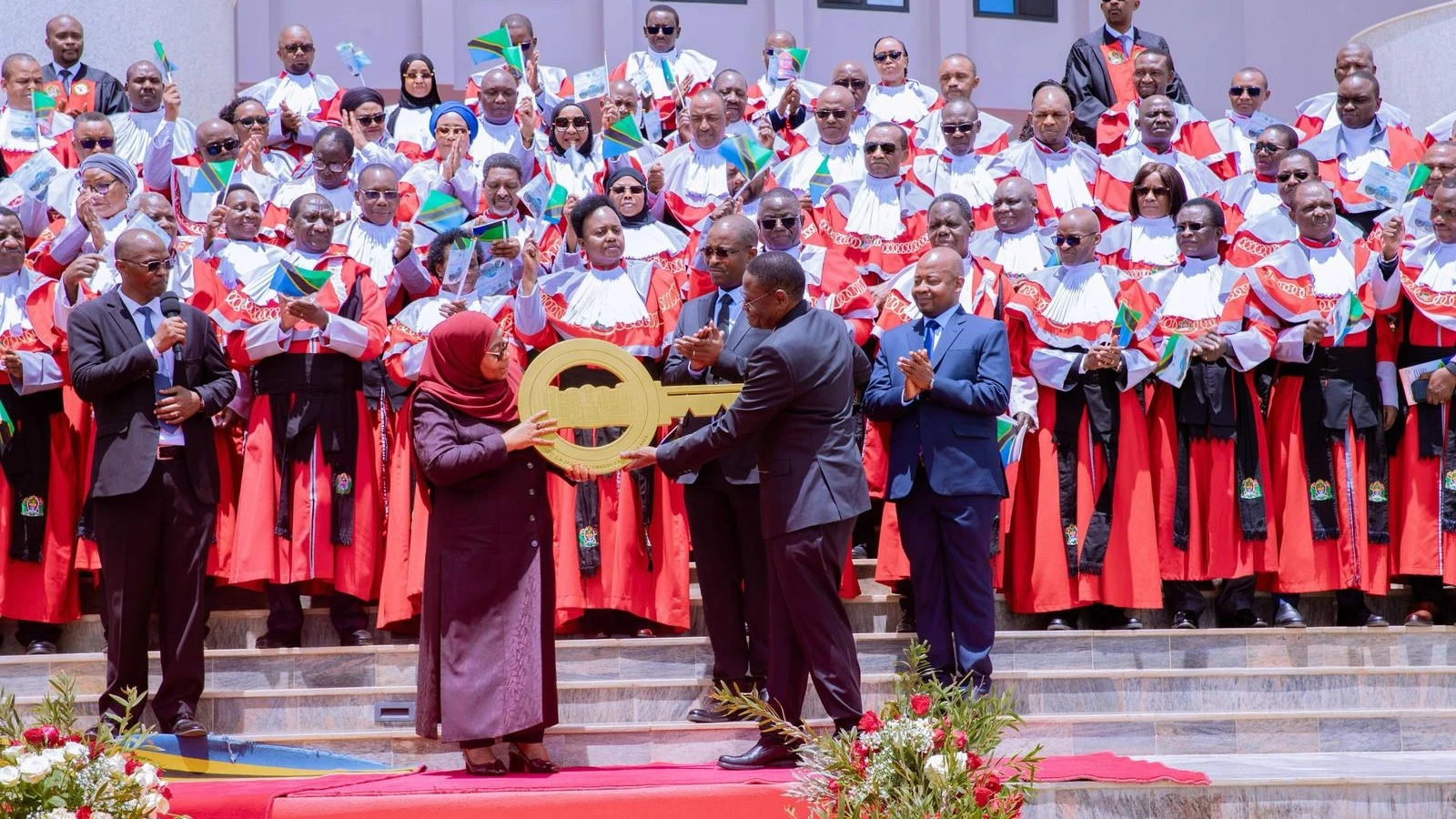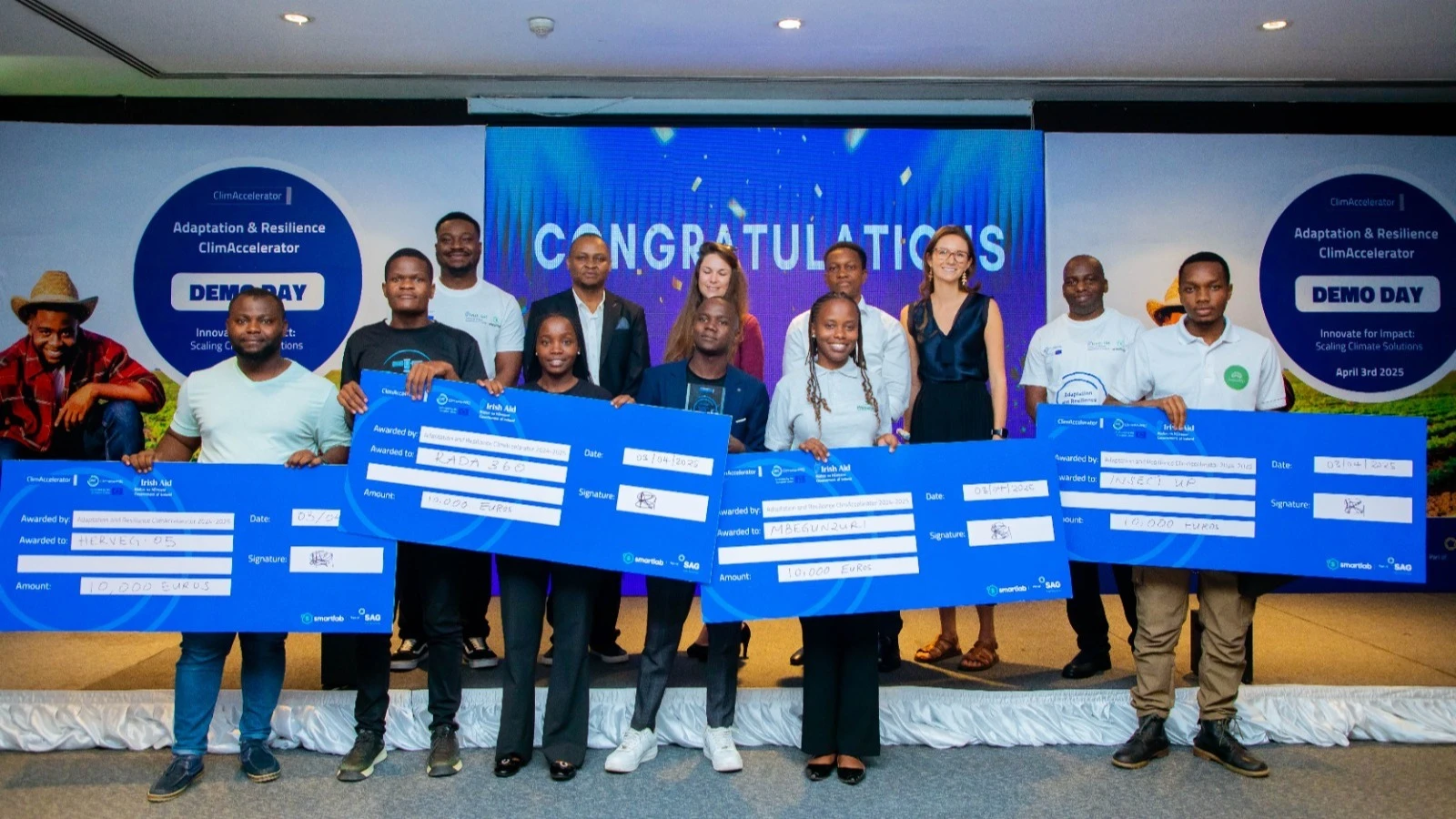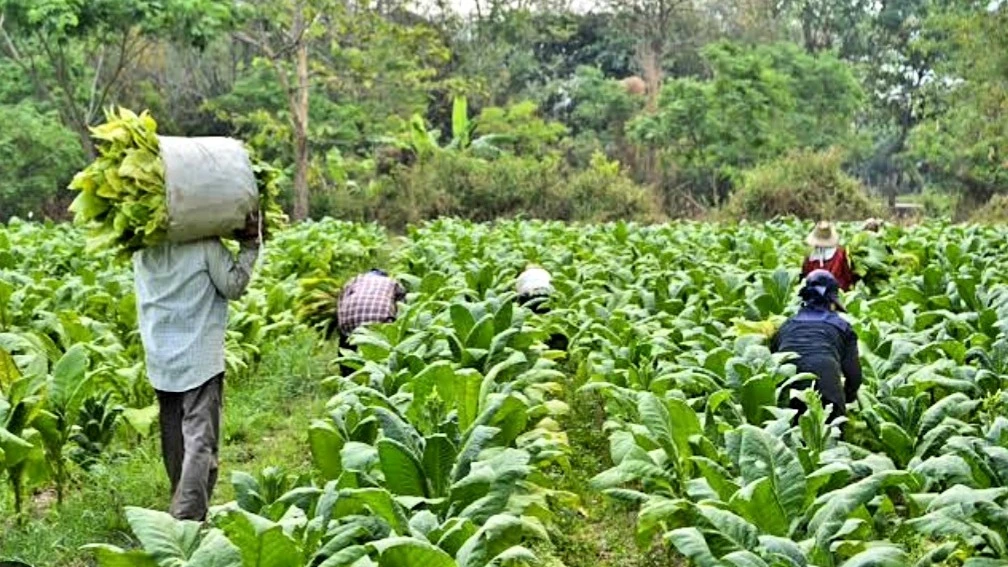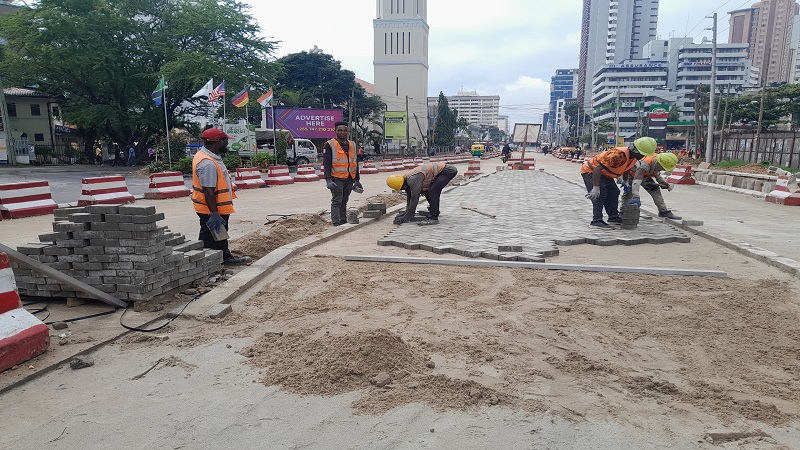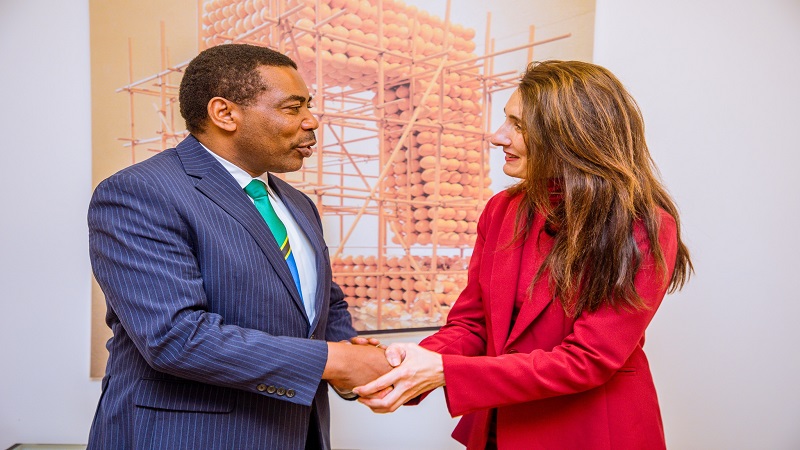Four start-ups praised for leading charge to build climate resilience
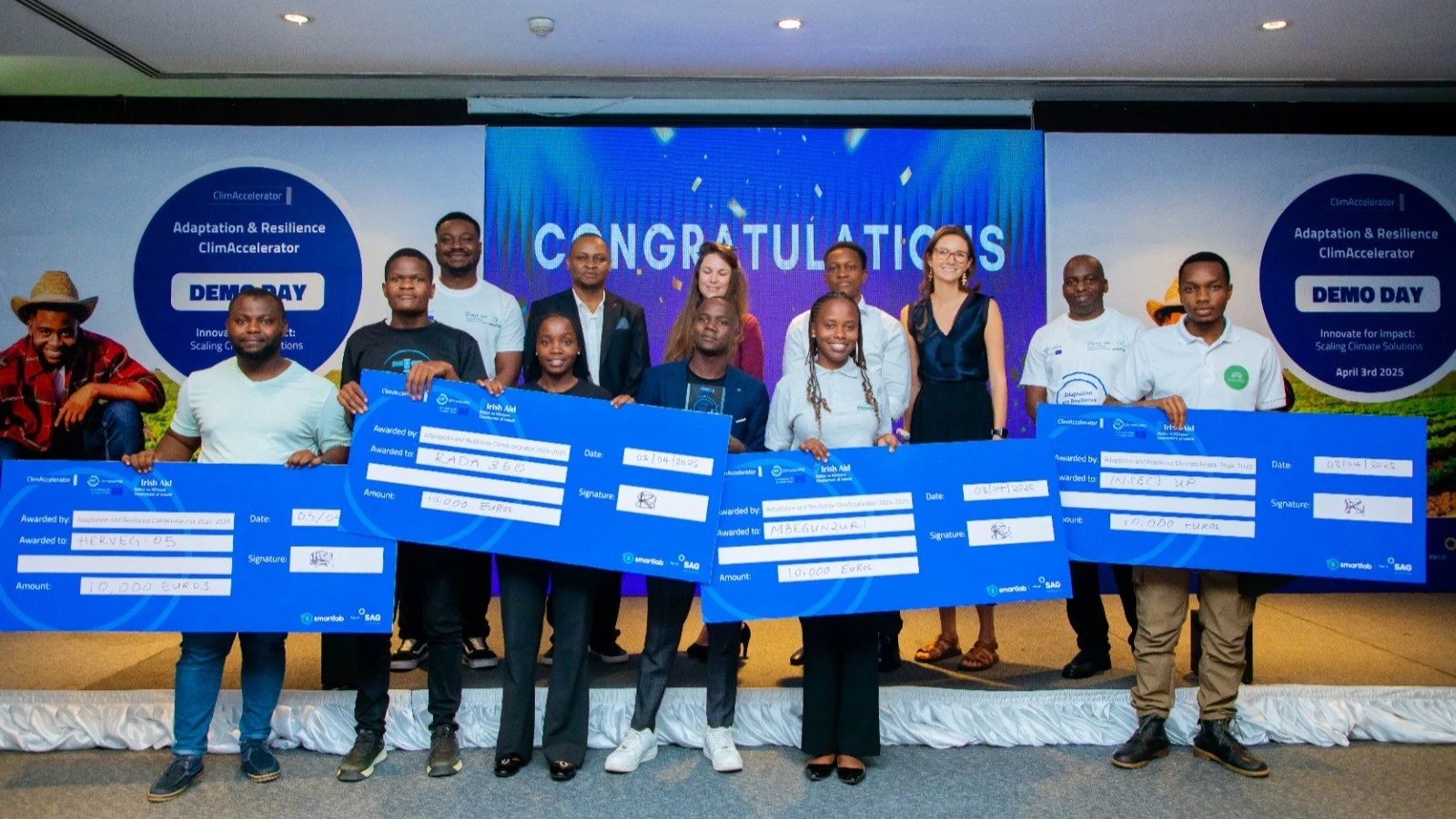
IN a world increasingly at the pity of climate change, innovative solutions are vital to ensuring that vulnerable communities can thrive amidst unpredictable environmental challenges.
In Tanzania, the 2025 Adaptation and Resilience ClimAccelerator Programme has emerged as a beacon of hope, supporting the next generation of climate-focused start-ups tackling pressing issues such as agricultural risks, malnutrition, waste management and the lack of climate-resilient solutions for rural populations.
Launched by Climate-KIC in partnership with SmartLab, the ClimAccelerator Programme offers select start-ups the opportunity to scale their climate adaptation solutions, connect with investors, and receive expert mentorship.
The latest edition of the programme culminated in a Demo Day held on Thursday in Dar es Salaam, where four pioneering ventures—Rada 360, Mbegu Nzuri Biotech Farms, InsectUp, and HERVEG.05—were recognised for their groundbreaking contributions to climate resilience.
The ventures were selected as the winners, each offering unique contributions to climate adaptation in Tanzania, receiving €10,000 in funding and enter the next phase of the programme—real-world testing in rural communities.
Rada 360, one of the winners, works to addresses one of the most pressing challenges faced by farmers in Tanzania—unpredictable climate risks. The platform leverages advanced technologies to provide real-time weather updates and climate risk forecasting to farmers, enabling them to make informed decisions about crop management. This solution aims to protect livelihoods by reducing the uncertainty that climate change has brought to agriculture.
Mbegu Nzuri Biotech Farms revolutionises agriculture with a focus on providing farmers with seeds that are not only drought-resistant but also adapted to the evolving climate conditions in Tanzania. By ensuring that farmers have access to robust and adaptable crops, Mbegu Nzuri is enhancing food security and resilience across rural communities.
InsectUp, tackles two critical issues simultaneously, InsectUp offers an innovative approach to organic waste management and malnutrition.
The firm produces sustainable animal feed from organic waste, turning it into high-protein food for livestock. This initiative not only reduces waste but also helps boost food production in rural areas, ultimately fighting malnutrition and strengthening food systems.
HERVEG.05 addressed twin challenges of environmental degradation and nutrition.
The organisation focuses on promoting sustainable farming practices that improve soil health while simultaneously tackling malnutrition in rural communities. By introducing sustainable agricultural practices, HERVEG.05 contributes to long-term soil fertility and enhancing the nutritional value of food produced in climate-affected regions.
Speaking during the event Sophie White, senior programmes manager at Climate-KIC, praised the success of the programme, noting: ‘Through the Adaptation and Resilience ClimAccelerator, we provide start-ups with the knowledge and tools to measure the impact of their solutions, test them in real-world environments, and ultimately position them to create tangible benefits for those most affected by climate change.” She noted that the Adaptation and Resilience ClimAccelerator is more than just a business incubator; it’s a comprehensive programme designed to equip start-ups with the tools they need to thrive.
One of its standout features is the adaptation and resilience innovation assessment and validation process, a framework developed by Climate-KIC that helps start-ups measure, validate, and communicate the impact of their solutions. This process ensures that the solutions presented are not only innovative but are also backed by evidence of their potential to create real-world impact.
“Through the process, these start-ups gain critical investor-ready credentials, which significantly improve their ability to attract funding and partnerships. With ongoing mentorship, expert advice, and valuable connections to investors and industry leaders, the selected winners are well-positioned to expand and refine their solutions in real-world settings,” she said.
Laurian Mafuru, programme associate at SmartLab, echoed these sentiments, highlighting the importance of the real-world testing phase: "By refining their solutions in real-world conditions, these start-ups will ensure that their innovations not only address urgent climate challenges but also enhance resilience in vulnerable communities."
Mafuru said the winners of the 2025 Adaptation and Resilience ClimAccelerator Programme proved that climate adaptation is more than just an economic opportunity—it’s a lifeline for communities facing the harsh realities of climate change. From enhancing food security and water access to improving waste management systems and tackling malnutrition, these start-ups are helping build a more resilient and sustainable future for Tanzania’s rural communities.
“The road ahead is one of both challenges and immense potential. With the support of Climate-KIC, SmartLab, and their growing network of partners, these ventures are set to drive the next wave of climate adaptation solutions that can be replicated across Africa and beyond,” Mafuru said.
SmartLab leads innovation hub in Tanzania, dedicated to fostering sustainable solutions and supporting the growth of start-ups in various sectors, including climate adaptation. Through mentorship, funding, and networking opportunities, SmartLab empowers entrepreneurs to create impactful solutions that drive economic growth and social change in East Africa.
Climate-KIC, Europe’s foremost climate innovation agency, has been at the forefront of developing climate-resilient communities. By mobilising systems change, Climate-KIC supports innovative start-ups and projects that accelerate the transition to a sustainable, low-carbon economy. With extensive expertise in over 60 countries, Climate-KIC is a key partner in scaling climate-positive solutions globally.
The four selected start-ups are not just addressing the symptoms of climate change—they are actively creating long-term solutions that build resilience, improve livelihoods, and ensure a sustainable future for generations to come. As the ventures continue their journey, they are poised to make a lasting impact on the lives of millions in Tanzania and set a model for the rest of the world.
Top Headlines
© 2025 IPPMEDIA.COM. ALL RIGHTS RESERVED












